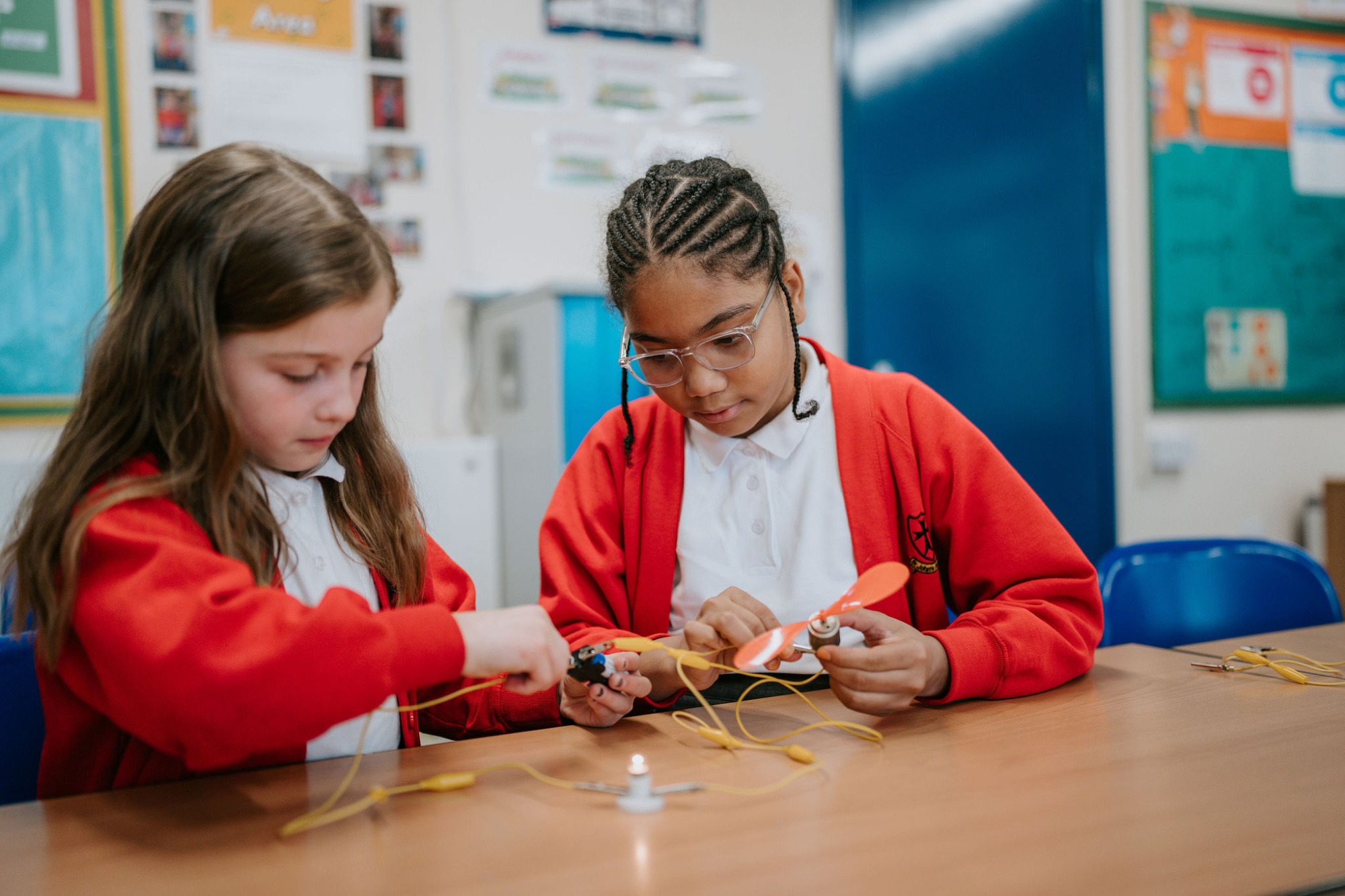Science

Science Curriculum Intent
-
We believe a high-quality science education provides the foundations for understanding the world through the specific disciplines of biology, chemistry and physics.
-
Through the teaching of chemistry, physics and biology, our aim is for children to become confident investigators who can apply their knowledge and skills to further deepen their knowledge.
-
We want all children to develop their curiosity, observation, questioning and reasoning skills through carefully investigating problems which are both child initiated and teacher led to promote a positive attitude towards science. As they develop their own interest in science, a sense of awe and wonder will inspire children's own curiosity about the world around them.
-
Alongside building up a body of key foundational knowledge, children will be encouraged to understand how science can be used to explain what is occurring, predict how things will behave, and analyse causes using a range of approaches which are carefully scaffolded to include all learners.
-
Our pupils are provided with real life investigations and experience aspects of local, national and global science as part of a broad and balanced curriculum. These are simultaneously developed alongside the St John’s values of kindness and respect for the world around us, British values and protected characteristics.
-
By the end of the primary phase, children will have acquired the skills and knowledge required to progress successfully in to Key Stage 3.
Science Curriculum Implementation
-
A curriculum has been strategically designed so that our pupils will study aspects of chemistry, biology and physics to enable them to develop an understanding of the world around them under the guidance of the National Curriculum following the Snap Science scheme.
-
Lessons are carefully sequenced to build upon prior knowledge using the Snap Science teaching sequence with retrieval activities incorporated to support children making connections between their learning and refresh prior knowledge.
-
Science is taught weekly across the year.
-
The use of thoughtfully considered resources and experiences inspire the children to investigate and ask measured questions.
-
Teachers model scientific skills and recording to support children’s working scientifically.
-
Teachers continually draw upon observations and assessments of pupils, to ensure they are challenged and to identify pupils who need additional support.
-
The use of formative and summative assessment is used to track progress of the children’s learning and inform planning of subsequent teaching and learning.
-
Lessons are engaging and where possible are multi-sensory to support the learning being accessible for all. This will also help to develop the children’s curiosity about the world.
-
The science curriculum is further enriched by providing purposeful experiences including visits or visitors to reinforce learning.
-
Early Years children access science through carefully planned activities in line with continuous provision.
-
Topic vocabulary identified in module introductions is displayed in each classroom to support discussions.
-
Where necessary, children with additional needs will be provided with appropriate scaffolds to support learning.
Science Curriculum Impact
-
As we believe that a high-quality science education provides the foundations for understanding the world through the specific disciplines of biology, chemistry and physics, children have the opportunity to develop their curiosity, observation, questioning and reasoning skills through carefully investigating problems which are both child initiated and teacher led.
-
The teaching and learning for this to occur is monitored by the science subject leaders, including planning scrutiny, book scrutiny, lesson observations and pupil voice.
-
Through experiencing a well-balanced science curriculum, children can meet the end of year NC expectations for scientific knowledge and skill. Children are able to deepen their learning alongside developing interpersonal skills to become confident, adaptable and resilient learners who relish a challenge; and critical thinkers who know how to keep themselves safe and healthy.
-
The use of Snap Science assessment questions supports teacher summative assessment judgements
-
To ensure pupils make progress and support can be targeted, learning is tracked from summative assessment entered 3x per year and reviewed at pupil progress meetings
-
As a Year 6 scientist, transitioning into secondary school, we aspire that our children are knowledgeable and confident scientists, who can draw upon their prior knowledge and skills to access the Key Stage 3 curriculum.
